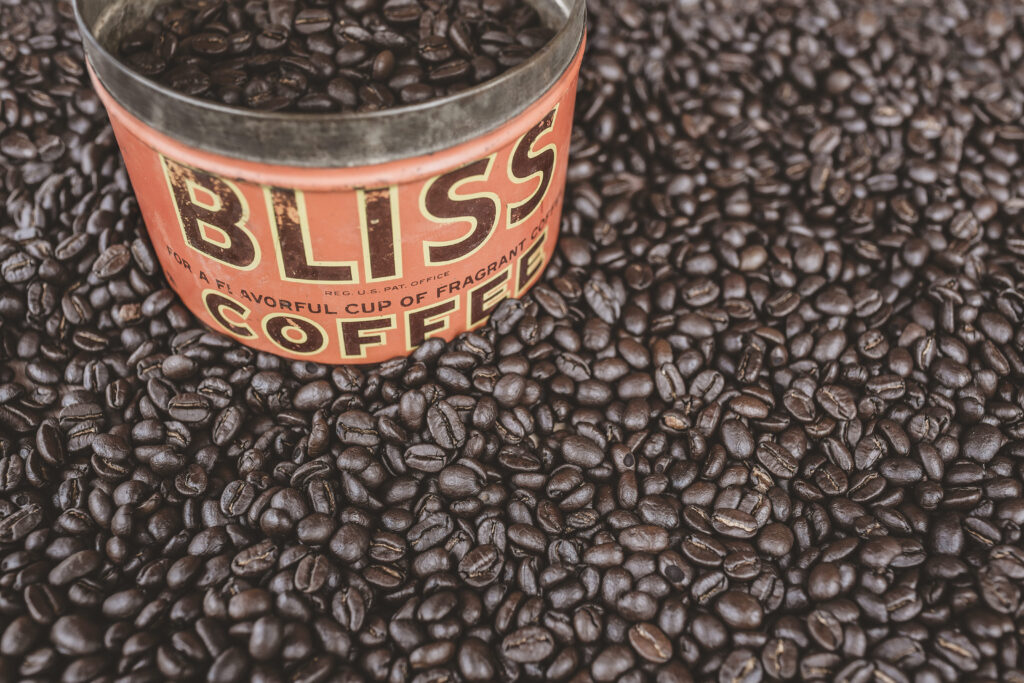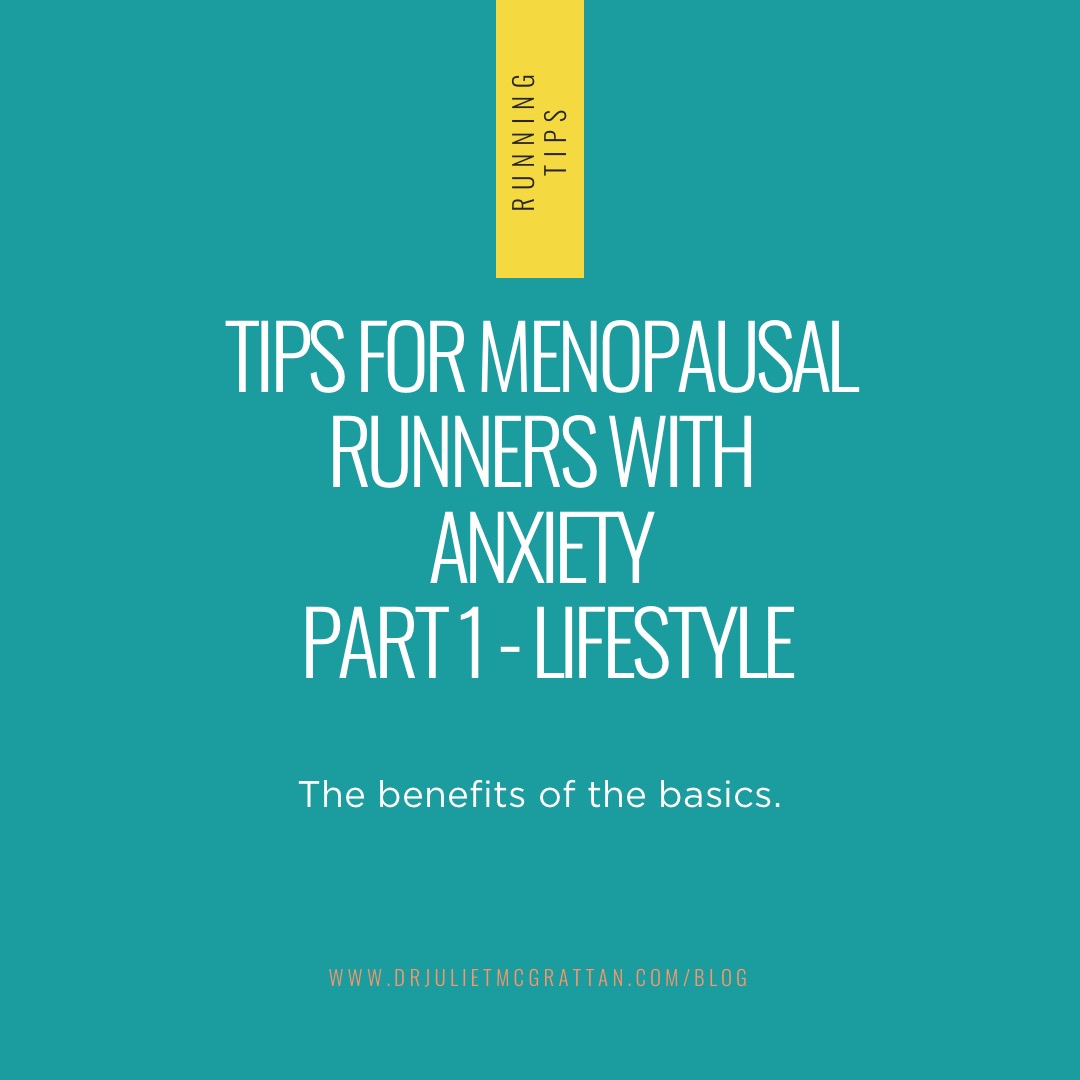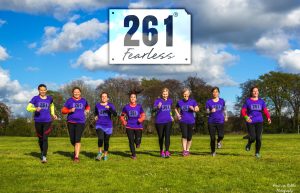In my last blog I talked about why anxiety is common in the perimenopause and the effect it can have on your running. Despite it being a challenge at times, running is a wonderful tool to have in your menopausal tool belt. It can help you to ease symptoms, grow your self confidence and generally cope with life!
Even when you know the benefits, it’s still difficult to do. You know it will help you, but it can be tricky to get yourself out the door.
There are lots of things you can do if you’re a runner with perimenopausal anxiety. I have a host of tips to share with you. Rather than overwhelm you with them all at once, I’ve split them into different categories. This week I’ll be covering lifestyle. Mindset, training and racing tips will follow over the coming weeks. Sign up for my newsletter below if you don’t want to miss a post.
Everyone’s experience of anxiety is different and what is doable and effective for one person is not the same as for another. These blogs are aimed at runners who feel a bit anxious during the perimenopause and not for women who have severe anxiety conditions.
My hope is that there might be one or two tips that you can try over this next week. Too much information and too many tasks can just feel overwhelming when you’re anxious and that can lead to you doing nothing at all, except panic!
Lifestyle tips for runners with anxiety
Let’s take a look at what we can do in our every day life to reduce anxiety symptoms. While running can make you feel better, it can also make running really challenging so it’s important for us to look at all aspects of our lifestyle to see what we can do to improve things. I’m talking about the actions we take in our every day lives, the way we structure our day and what we fill it with.
Here are some ideas. Remember, just choose one or two to implement rather than thinking you have to do them all.
Caffeine

Watch your caffeine. Caffeine is a stimulant, as a result of drinking it you can get a raised heart rate, alertness, palpitations and feel jittery. These are all feelings that are common with anxiety. Remember it’s not just coffee that contains caffeine, it’s in tea (including most green teas), cola, chocolate and some sports drinks and gels.
TIPS:
- Reducing or stopping caffeine can be a game changer for some perimenopausal women
- There are some great decaf options out there now
- Keep your morning caffeinated cuppa if you want to and switch the others to decaf
- Find a calming herbal tea that you enjoy, try chamomile or a warming mint tea
- When you drink it, take the time to smell it, breathe deeply and feel yourself relax. Use it as a destress moment
- Caffeine can still be handy to use before a race if you’re looking for a top performance but you might choose to avoid it during training.
Alcohol

Alcohol may make you feel relaxed and chilled when you drink it but there’s a high chance that you won’t feel good the next day. Tolerance to alcohol is reduced in many women in the perimenopause so it’s not uncommon for it to leave you feeling on edge, unsettled and a bit anxious, especially if you’ve drunk more than you normally would.
TIPS:
- Notice how alcohol affects you at the time you drink it and the next day
- There may be certain drinks or volumes that bring on the anxiety symptoms
- Experiment with going tee-total and see what benefits you get, to your life generally and to your running
- There’s nothing that says you have to stop altogether. Find the level of drinking that feels right for you
- Got carried away one night? Don’t beat yourself up. You know why you feel the way you do. Pick some anti-anxiety strategies to get you through until it eases off again.
Food

It’s really common to use food as a coping mechanism. Do you find yourself reaching for the sugary treats when you’re a bit stressed, anxious or tired? It might be an unconscious thing, so start looking for patterns and simply notice how you feel when you reach for a packet of biscuits. Know that appetite can increase during perimenopause and hormonal fluctuations can have a direct effect on food cravings. Sugar highs and lows can add to feelings of anxiety. If your fuelling is all over the place that can have a big knock on effect to your running too.
TIPS:
- Avoid high sugar and processed foods
- Aim for foods which will give you a more constant source of energy to avoid the sugar roller coaster
- Stick to savoury snacks when you can
- Look out for your ’emotional eating’. Stop, question yourself and make a good choice.
- Avoid running when you’re fasted or hungry. Eat regularly and fuel your runs properly
- Crank up magnesium-rich foods. Magnesium might help to alleviate anxiety but the studies aren’t clear yet. Pumpkin seeds, chia seeds and almonds are easy to throw on your cereal.
- Explore foods that are said to have anti-anxiety properties such as turmeric, dark chocolate, turkey breast and green leafy veg
Sleep

There’s no doubt that a night of poor sleep can make feelings of anxiety worse. Your coping skills are lower, you can feel overwhelmed and start stressing about the small stuff. Feeling tired will also make it very hard to get out for a run. Sleep is often badly disturbed during perimenopause, either through hormone changes directly affecting your ability to sleep or indirectly through waking up with night sweats or needing to pee. Sleep is so crucial to runners, it’s when your body repairs and strengthens itself so lack of sleep not only leads to worse anxiety but often to reduced running performance and higher risk of injuries too.
TIPS:
- Know that resting is almost as good as sleeping, your muscles and bones will still be able to repair and recover. Worrying that you can’t sleep will only make it worse
- When your anxiety levels are high, spend a good amount of time trying to reduce them before you head to bed. An extended wind down might include a walk, a bath or distraction with a funny film
- Consider some slow, peaceful yoga before bed. It’s great for stretching and can quieten your mind
- Have screen-free time before bed. Don’t scroll through Instagram looking at your running friend’s posts. The quick processing of info that your brain has to do when you scroll can raise anxiety levels plus the light from the screen doesn’t aid sleep
- Meditation can be powerful for relieving anxiety and gratitude is said to help too. While you’re lying there trying to sleep, take some slow breaths and revisit your day. Walk back through it in detail and think about all the things that you’re grateful for. Chances are you will be asleep before you’ve got to tea time
- Try all the things you see recommended such as herbal tea, essential oils etc and see what works for you as an anxiety-busting sleep routine.
Exercise

I’ll be covering all about mind set and running in next week’s blog. What’s important to know is that exercise has been proven to help reduce and control symptoms of anxiety. If you’re in the middle of a panic attack then heading out for a run clearly isn’t the right thing to do. The benefits are more from a regular habit of exercise over a number of months. Even small amounts of exercise can help to lower stress and anxiety levels over the long term.
If you’re feeling very anxious, you may know that running at that particular moment isn’t right for you. There might be other times when you’re feeling a bit on edge and going for a run is absolutely what you know you need. We are all different and every day is different for each of us too.
TIPS:
- Try to exercise daily, even if it isn’t running, a walk outside is known to be beneficial.
- Don’t let running create anxiety. Take a step back and see if your goals, routine and performance are adding to your stress
- Run when you feel good, not just when you feel you ‘need a run’
- Use your running to quieten your mind, that might mean running in silence or listening to a podcast, audio book or music
- Broaden your exercise so you can have more choice of things to do. Yoga and stretching can be relaxing. A strength class online is a good option when you don’t feel like going out and want to be on your own. Swimming up and down a pool (at a quiet time!) can be very meditative. Remember there is more to exercise than running!
I hope these tips are helpful. It can all be one big jumble in your mind, take the time to notice how you feel and what you need. As I said, just choose one or two things to start with. Once they’re established you can add something else.
Come back next week for lots of mind set tips for anxious, menopausal runners and leave me a comment here or on my socials if you’ve found this helpful. Don’t forget to sign up for my newsletter below for more help as a menopausal runner too.








Sleep can be my issue so been using the rest tip for a while. Find that once I’ve got a grip on that I then just fall asleep.